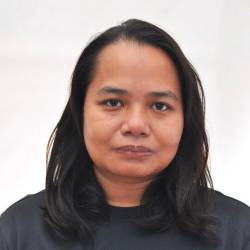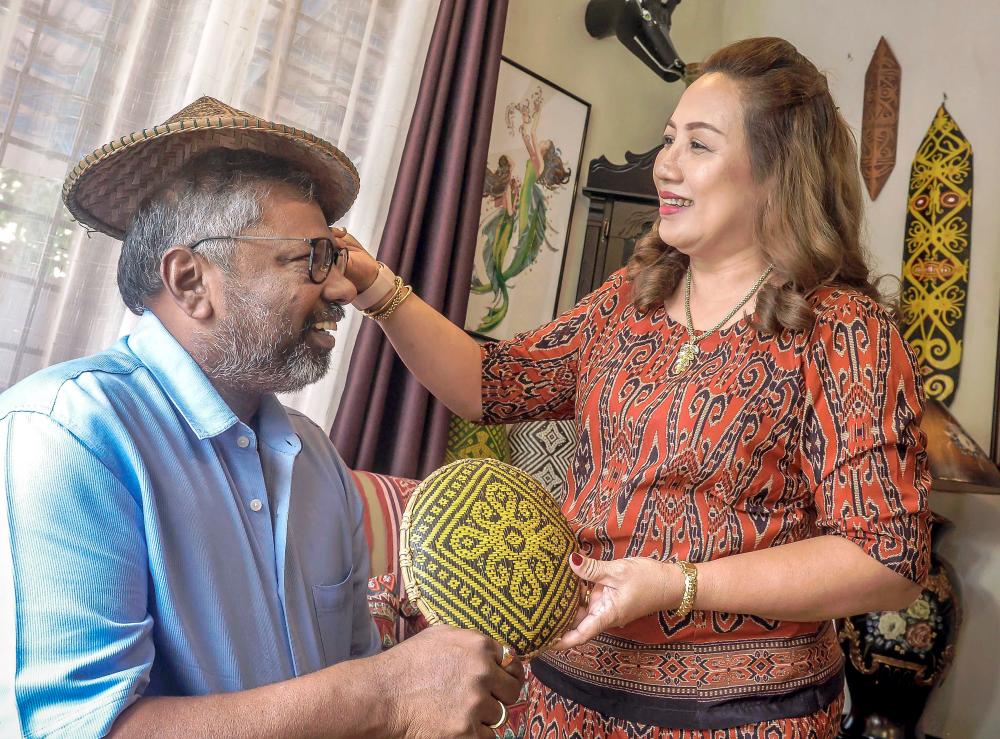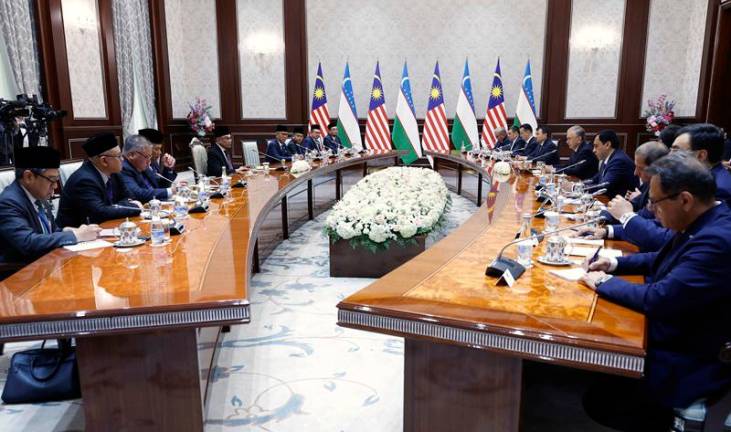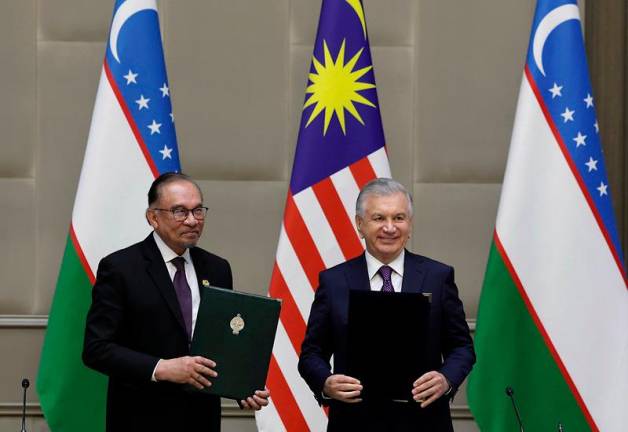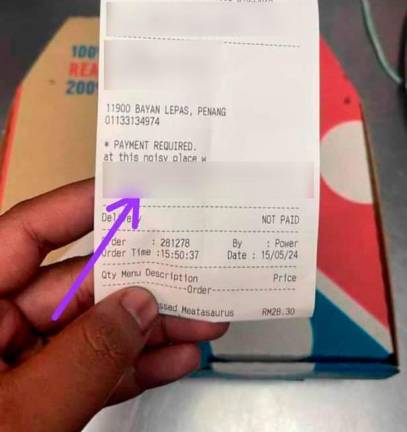PETALING JAYA: The saying that love is blind holds true for Lulie Obu and Adison Pillai, who first locked eyes 31 years ago in Bintulu, Sarawak.
Lulie, 55, told theSun she and Adison, 56, were working together then as the latter was based in East Malaysia, employed by a timber company.
Adison, then a 25-year-old executive, was an adventurous soul and fell in love with Sarawakian culture and the Iban community, thanks partly to Lulie, who introduced him to her rich heritage.
“I found the honesty and simplicity of the Iban people an attractive quality,” he said, adding that it took several lunches with Lulie to woo her. Lulie, on her part, said she found Adison’s kind and engaging nature attractive.
The couple soon met with Lulie’s father at the family’s longhouse. Her father was so concerned for his daughter that he did not approve of Adison when he asked for Lulie’s hand in marriage.
Adison said it took almost a year of visiting the elders to convince them that he was worthy to be her lifelong partner.
“Lulie’s father agreed on condition that I would stay in Sarawak.”
His father-in-law told him that the family had large plots of land that could help the couple earn an income as newlyweds.
“It was an unusual request as he came from the peninsula. And it took time for my parents to understand that he was just as capable of providing for me as anyone else,” Lulie said.
Their marriage was a community affair. More than 500 longhouse dwellers pitched in to get them all the required items to celebrate their big day.
A few years later, the couple moved to Kuala Lumpur when the company Adison worked for had completed its work in Sarawak.
“The family was heartbroken. I recall my father-in-law crying at the airport. A one-way ticket from Kuala Lumpur to Bintulu cost about RM1,000 then, but we made every effort to visit my in-laws and even brought them to Kuala Lumpur.”
Blessed with three children who have taken up an interest in preserving the Iban culture, Lulie said: “It is vital that we pass down to the next generation the importance of respecting our elders.
“This is in addition to knowing the language. Our children speak Iban and they identify themselves as Sarawakians. Our youngest would ask me to wear our traditional costume to school, and I taught them ngajat, a traditional dance.”
She said the family enjoys making manok pansoh, an Iban delicacy. The dish is prepared with chicken pieces wrapped in tapioca leaves and then stuffed into hollow bamboo pieces before being roasted over an open fire.
She proudly pointed to a 60-year-old tapestry hanging in the family’s Subang Bestari home.
“It took my grandmother a month to make this. I would often see her weaving it while I was getting ready for school.”
Lulie is part of the Persatuan Anak Borneo Semenanjung, which has more than 500 members consisting of Sarawakians and Sabahans living in Peninsular Malaysia.
Its president Gangging Ling Sanggau said the organisation serves to safeguard the heritage of each community and ensure that the remains of those who die are returned to their native land.
“Having been married to Lulie for 31 years, I have learnt that while our races and cultures may vary, it is important to respect the differences that make us truly unique as a nation,” said Adison.



